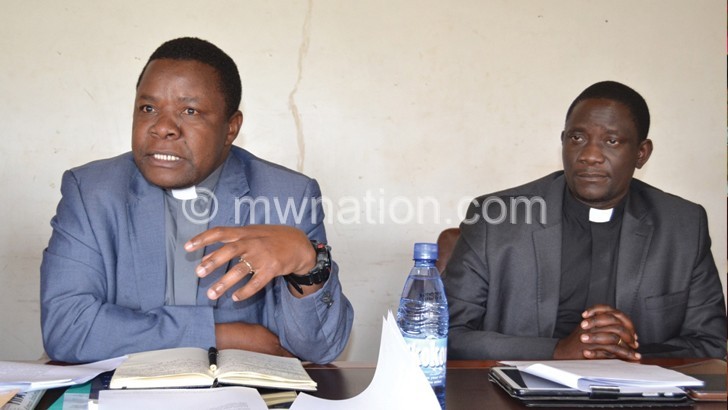CSOs snub minority rights consultative meet
Some civil society organisations (CSOs) and human rights activists have ignored a Malawi Human Rights Commission (MHRC) invitation to attend consultative meetings to find an appropriate way to conduct a public inquiry on minority rights.
The taxpayer-funded MHRC is planning a public inquiry on the lesbian, gay, bisexual, transgender and intersex (LGBTI) rights and issues and on LGBTI people in Malawi following a request from government.
But while acknowledging the legal mandate MHRC has to conduct such an inquiry, CSOs and other similar-minded organisations and individuals argue that the intended process is flawed as it undermines the primacy of human rights-based approaches.

In a letter dated August 15 2017 signed by 12 CSOs addressed to MHRC, the parties stress that human rights should never be put to a referendum or any other process that will result in some findings based on numbers or statistics.
The CSOs also urge MHRC to cancel the planned inquiry and instead redirect its energies on investigating the legal situation, prevalence of physical and other forms of violence, torture/ill-treatment, arbitrary detention, access to justice and remedy, right to education, health, employment, housing, and freedom of expression/association/assembly.
Signatories of the letter are Centre for the Development of People (Cedep), Human Rights Consultative Committee (HRCC), Centre for Human Rights Education, Advice and Assistance (Chreaa), Centre for Human Rights and Rehabilitation (CHRR), Malawi Network of Religious Leaders Affected or Living with HIV and Aids (Manerela), Art and Global Health Centre Africa, Ivy Foundation, Nyale Institute, Mango Network, Lesbian, Intersex Transgender and other Extensions (Lite) Association and Community Health Rights Advocacy (CHeRA).
However, MHRC yesterday proceeded to solicit views from a human rights lawyer, Chrispine Sibande, and Centre for Solutions Journalism (CFSJ) director Brian Ligomeka before meeting faith leaders later.
Sibande warned that MHRC risks tarnishing its image on the international scene if it subjected “human rights issues” to debate.
On the other hand, Ligomeka wondered whether the timing of the inquiry was proper considering that Malawians would be going to the polls in a matter of 24 months’ time.
He said: “Is the timing right? Won’t we see politicians politicising the issue?”
Episcopal Conference of Malawi (ECM) secretary general Father Dr. Henry Saindi wondered why debate on the matter was still ensuing when one of the former Solicitor General had told the nation that a research had shown that Malawians were opposed to LGBTI rights and issues.
In his remarks, MHRC board chairperson Justin Dzonzi commended the groups for the input. He assured the commission’s commitment to maintaining professionalism and impartiality in the whole process. n





